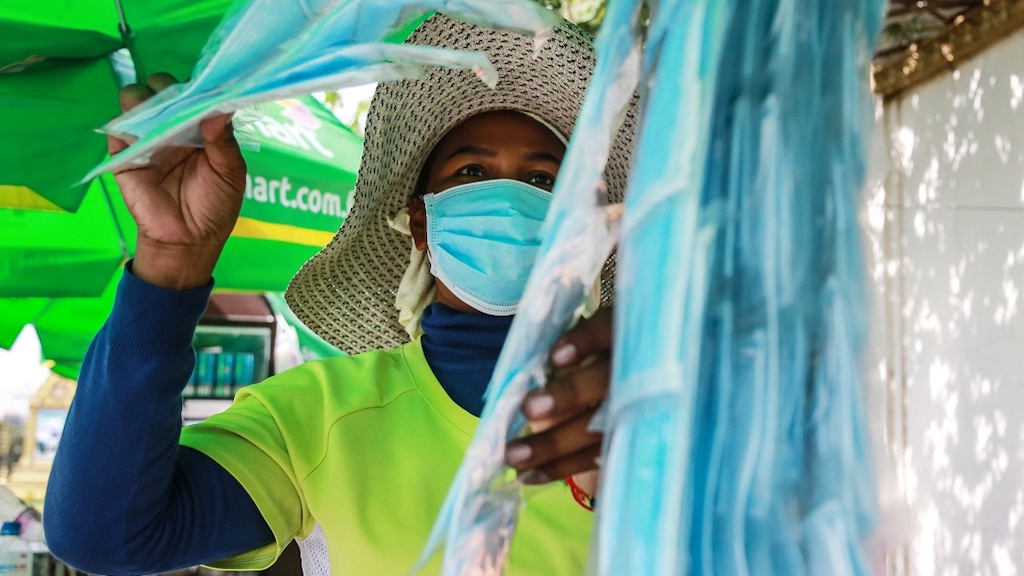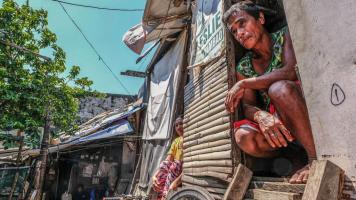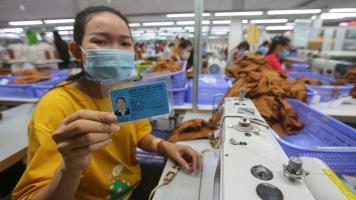
The MOU covers the ASEAN List of Essential Goods, which covers mostly medicines and medical supplies and also includes soaps, disinfectants, and face masks. Photo credit: ADB.
Ten countries in Southeast Asia are removing restrictions on intraregional trade of medicines and other goods needed to fight COVID-19.
Ten countries in Southeast Asia are removing restrictions on intraregional trade of medicines and other goods needed to fight the coronavirus disease (COVID-19). This move is part of joint efforts to control the spread of the disease and mitigate the pandemic’s economic impact.
Economic ministers of the Association of Southeast Asian Nations (ASEAN) signed a memorandum of understanding (MOU) on 13 November 2020 to phase out or eliminate non-tariff measures for the ASEAN List of Essential Goods, which currently covers 152 tariff lines of mostly medicines and medical supplies and equipment. It also includes soaps, disinfectants, and face masks. The agreement will apply for 2 years from its signing unless member states agree otherwise.
The MOU calls on ASEAN countries to refrain from imposing new and unnecessary non-tariff measures on these goods to prevent supply shortages in the region. Restrictions may be made when there is a public health emergency but “such measures must be targeted, proportionate, transparent, temporary,” and conform with international trade agreements, such as the World Trade Organization Agreement and the ASEAN Trade in Goods Agreement (ATIGA). Member states are also asked to share timely information on any trade-related measures on these essential goods and supplies.
ASEAN groups Brunei Darussalam, Cambodia, Indonesia, Lao People’s Democratic Republic, Malaysia, Myanmar, Philippines, Singapore, Thailand, and Viet Nam. They are also part of the Regional Comprehensive Economic Partnership (RCEP), which was signed on 15 November and is said to be the world’s largest trade agreement.
The MOU on essential goods is part of the Ha Noi Plan of Action on Strengthening ASEAN Economic Cooperation and Supply Chain Connectivity in Response to the COVID-19 Pandemic. It was signed at the sidelines of the 19th ASEAN Economic Community Council Meeting, which was held through video conferencing because of the pandemic.
The pandemic has disrupted global trade and transport. The ASEAN countries are taking steps to improve trade facilitation and keep supply chains moving in the new normal. On 20 September, they began implementing the ASEAN-Wide Self-Certification (AWSC) scheme. It is an initiative that is expected to facilitate and boost trade among the 10 member states by making it easier, faster, and less costly to export goods. Eligible exporters can self-certify the origin of their goods to enjoy zero tariff under the ATIGA, which provides for the removal of import duties for nearly all the products of ASEAN.
This article was first published by BIMP-EAGA on 23 November 2020.


